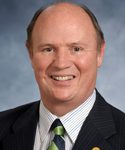
By Andy Brack, editor and publisher | State coffers could get $2.5 billion in new federal funding over two years if lawmakers get over longstanding political objections to expand Medicaid to cover about 200,000 residents without health insurance. At present, many agree expansion is more of a possibility than a probability due to the state’s political climate.
The new funding over two years would come from a 90 percent federal match of health insurance costs plus a new federal incentive of about $790 million with few strings attached, analysts say. And if lawmakers were to cut off funding to pay for insurance for those in the expansion pool, they reportedly wouldn’t have to return the extra money.
But the incentive, which is part of the newly passed $1.9 trillion coronavirus relief package, faces an uphill battle in South Carolina as Gov. Henry McMaster is vehemently opposed to adding uninsured, poor South Carolinians to federal health insurance through Medicaid expansion despite the fact that many of them work.
“Gov. McMaster isn’t for sale, regardless of whatever ill-conceived ‘incentives’ congressional Democrats may come up with,” spokesman Brian Symmes said in a statement last week to the Associated Press. “What the federal spending plan does is attempt to offer a short term solution for a long- term problem.”
After the federal government approved the Affordable Care Act in 2010, it provided 100 percent of costs of expanding Medicaid to cover low-income families for three years, with the amount eventually dropping to 90 percent. Twelve states, including South Carolina, did not expand, which means S.C. lawmakers left $11 billion on the table and left eligible poor and working families without health care.
In the new incentive plan, the state would get about $790 million over two years, but would have to pay $95 million a year for its 10 percent share of expansion for state residents. The net — $600 million — could be used to cover state costs of expansion for another six years or used for different purposes.
Getting started
State lawmakers are just starting again to grapple with the thorny issue of Medicaid expansion. Senate Democrats are planning a press conference next week to discuss the issue, which also is the focus of a free virtual “closing the gap” forum at 7 p.m. Monday by the League of Women Voters and other expansion advocates. Register for free.

“We are acutely aware of this opportunity and the opposition of the governor,” Senate Minority Leader Brad Hutto, D-Orangeburg, told Statehouse Report. “We are meeting with interested parties to explore options.
“First, we need to create public awareness to this opportunity and then pursue a strategy to change the current knee-jerk ‘no’ response we are receiving now when we raise the issue. More to come.“
Sen. Thomas Alexander of Walhalla is a leading Medicaid voice for Republicans in the Senate. The issue is not currently under consideration, but he said his colleagues needed to learn more about the short- and long-term requirements on the new incentive.

“From a policy standpoint, I don’t know we would be there in expanding Medicaid,” said Alexander, who chairs the Senate Labor, Commerce and Industry Committee. “I’m sure over the next six months to nine months, we’ll learn more about it,” he said, adding that senators would wait a bit to let the “dust settle” on the issue. He emphasized that Republicans were more focused on improving access to health care through health centers across the state than they were on expanding a program for funding of individuals.
What advocates say
The S.C. Hospital Association (SCHA), which strongly backed earlier Medicaid expansion efforts, is taking a slightly different approach with the new incentive, particularly since the legislature is even more Republican-dominated today, compared to seven years ago.
“SCHA believes that every South Carolinian should have access to affordable, high-quality health care and we will continue to advocate for the state’s elected leaders to make use of the available policy tools that will help our state achieve that goal,” said Schipp Ames, SCHA vice president of strategic marketing and communications. “This includes stepping up efforts to enroll more individuals in the marketplace and directing coverage to vulnerable populations throughout the state.”
Ames said part of the coronavirus relief package allows states to expand Medicaid coverage for mothers until a child’s first birthday, regardless of income — a bipartisan measure that separately passed the U.S. House last year.
“States now have the ability to close this crucial coverage gap without needing federal approval of a waiver,” he told Statehouse Report. “SCHA strongly supports the extension of postpartum coverage and encourages state officials to adopt this provision as soon as possible. And we will continue to look for ways we can work with stakeholders to increase health coverage and reduce the uninsured rate in South Carolina.”

Sue Berkowitz, executive director of the S.C. Appleseed Legal Justice Center in Columbia, said polling showed most South Carolinians wanted residents to have health care coverage.
“We need to get folks from around the state to demand that our political leaders respond to this and pass expansion as the majority of the people in our state desire,” she said.
“Medicaid expansion has always been a cost-effective way for the state to get health care coverage to low-wage workers through a state/federal partnership with the state paying 10 percent and the feds paying 90 percent.
“It [expansion] would cover costs of some programs that we pay 100 percent in state dollars, such as mental health coverage and costs for those who are incarcerated and find themselves hospitalized. It would improve our health care outcomes and keep those who have health problems from worsening due to lack of coverage. It would also help our rural hospitals, many of which are on the brink of financial ruin.”
Berkowitz said many policymakers wrongly believe expansion helps only the poor who aren’t working.
“[Expansion would help] hard-working people of our state that do not make a living wage and are not offered health insurance. They fall into the health care coverage gap because despite working, often full-time, they do not make enough to participate in the Affordable Care Act, and are not categorically eligible for Medicaid. It is the people who wait on us at the grocery store or restaurant, clean our hotel rooms, care for our seniors in nursing homes. The pool of people may have increased due to the pandemic due to the loss of some jobs that provides insurance.”
- Have a comment? Send to: feedback@statehousereport.com. Make sure to add your name and contact information for verification.



Pingback: Charleston Currents – NEW for 3/29: Art walk; Vaccinations and virus; More